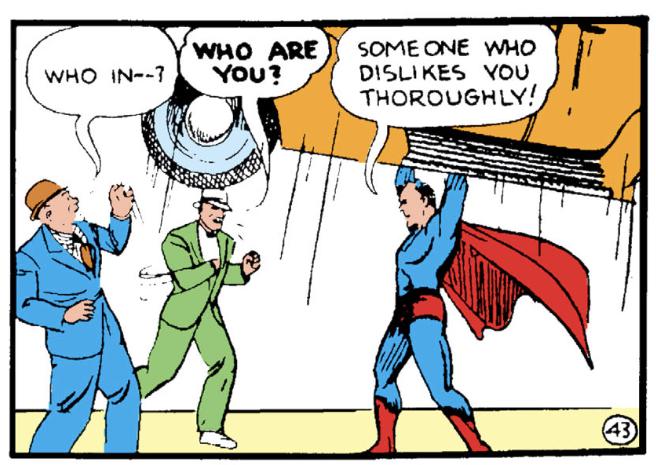So what goes into writting a book, can anyone do it, ive been wanting to do many things for a while but i think sense i was a kid i wanted to write a book or even a short story or something that i can publish. the thing is i have major dylexia, i tend to not plan things and instead write on the spot, also i have partiall ideas. i dont want to write fanfic but instead i want to do something more orginal. i was told i was a creative writter as a kid but im not sure about now.
im not even sure if writting a book is worth it or not i raley even read but yet i feel like something is missing in life. is there by chance a good youtube video that explains all of this?
Anyone can write a book! It may or may not be good, and even if it is good it nay not become popular. A good editor will help correct any mistakes caused by your dyslexia. Writing without a plan can be very hit or miss. I believe Stephen King writes by the seat of his pants for most of his stories. He’s an incredible author and has become wildly successful, but he is known for his poor endings because of his lack of planning.
Writing a book takes years when it isn’t already your job. My dad has been casually writing a book for 7 years. It will go faster the more serious you are, of course.
thank you for all this info, i hope someday i can finish a project or something involving writing.
Removed by mod
punctuation too
Yes, anyone can write a book! If you have an idea, write it!
If your only goal is to finish a book, check out https://nanowrimo.org/ for inspiration and support just for to force yourself to write and keep writing!
If you want to publish it, self-publishing is surprisingly cheap, if you’re happy if you only sell a few hundred copies, many just to friends and family.
If you want to publish a real novel that appears in bookstores and gets featured and advertised, you need to submit it to publishers…and be prepared for LOTS of rejection. Some of the BEST novelists I know write 10 books for every 1 they get published. Now imagine the worst writers!
@minorninth I’m seconding NaNoWriMo. It helped me write two novels, and I got my whole family into it as well. Plus there’s a very robust community around it that is full of help and support.
Also, the best book on writing I ever read was oddly enough by Stephen King (it’s called On Writing). It’s not long, it’s a very easy read and I swear I learned more from that book than I did in college.
There’s a lot of good answers already here, so I will post a few unique things.
I’m writing a novel (a damn good one too). The first thing you want to know is that you need years of experience if the novel’s going to be any good. That does not mean you need years of reading and writing experience specifically— you can replace it with other kinds of experience. For one, you’ll need some maturity— some understanding of people, some understanding of the world, stuff like that. And then you’re going to want to read at least a little about writing, even if it’s just TVTropes.
This may not work for you specifically, but it would also help a lot if you— like me— are a huge lover of any of the fictional arts. I don’t really read novels anymore, but I am obsessed with the multimedia fiction arts— things like movies, comics, and video games. I read a ton of articles about writing, I watch a ton of multimedia critics and essayists, and I read things like Mythcreants and TVTropes. Unlike most people I know, I hugely value the writing and storytelling in video games, and can get really angry at games that have a ton of writing/dialogue but it’s all crap (looking at you, Pokémon and Golden Sun).
I would also like to say that pure “pantsing” is a pretty bad idea, even for pantsers. “Pantsing” means that you just sit down and start writing. Don’t do that. At least start planning and writing down things you really want to see happen in your novel, locations, characters, whatever. At best, outline as much as possible before you even start. With that said, having a roadmap is good, but not critical; personally, I think preparing your novel to include scenes you are super excited about is much more important.
Which leads to a very important point: if you don’t like writing something, stop writing it. Focus on things you love. If that scene or genre is boring you or is soul-crushing, stop writing it and write a scene you’re excited about. If you’re excited about something, your readers will be too. They’ll feel your energy and love.
Next point. In this day and age, don’t write anything too standard or predictable. There are a million and a half generic D&D-feeling fantasy books that don’t get published, and they will bore any agent (and reader). Bring something new and exciting to the premise, and make sure people know about it from the first few paragraphs. Intrigue people.
Final point for now: Focus on writing well. Don’t focus on what’s selling, don’t focus on a market, don’t try to chase bandwagons. Do not care if you will get published or not. For one, trade publishers are usually awful, don’t offer anything of value except a professional editor, and are basically crappy venture-capitalist middlemen. Just focus on writing something you love and which is genuinely good, for now. By the time you’re done, the trade publishing landscape will probably have changed anyway.
Anyone can! I’ve written a book and self published, August will be 10 years. Couple of things
- Write it for yourself, it’s a big accomplishment.
- I recommend planning it all out. Stephen King is Stephen King for a reason, not everyone can do it. But you don’t have to plan EVERYTHING. You have A and you need to get to D, let B and C be your creativity, it might even change what D originally looked like.
- Write background stories for all your characters. Write EVERYTHING about them. Their favorite show growing up, the foods they hate, their phobias. This helps them be more real and helps with story planning. You’ll know whether or not your character will do something based on who they are.
I say, go for it!
What an amazing person you are!! Thank you for the advice
You’re very welcome!
While I don’t have the answers I did attempt to write a book for fun many years ago. It was quite an eye opening experience, because it turns out writing a book is hard, and very time consuming. I was only about 20 pages in before I gave up the idea.
That said, you don’t have to actually write a book. Writing creative essays, short stories, and even articles can be very rewarding without needing any long-term commitments. I’d give those a shot before jumping into something as big as making a real book. I still enjoy writing and I’m sure you will too, but you need a ton of commitment to make a book.
ill probrably end up writting a bunch of short storys.
I think this is what the likes of Andy Weir, Ernest Cline and Hugh Howey did - write short stories for blogs, then collate them together for a book.
Just do it! I would suggest just start writing. Editors and technology can help you cover some of your issues. What sort of books are we talking about? 200+ page nonfiction? IMO writing a book is an endeavor.
Find a platform somewhere and write short stories, whether it be your family and friends or somewhere on the Internet. Check out https://lemmy.world/c/writingprompts (even bigger on Reddit). Write blog posts. Write write write. Maybe exploring those partial ideas. Collect all your writing in one area so that you can look back at it and see progress.
Writing a fiction book is pretty much making your own D&D campaign where you’re all the characters and the DM.
My advice is to do things that bring you joy, and if there a hit then consider that an added bonus. I’m a computer programmer and some of my most popular projects were started by me being curious how something works without any intention of doing something with it. If I set out to do something amazing I would have failed outright.
So write a short story, then write another one. If you end up writing one you feel is with showing off then find a writing club to share it with, or post it to a blog. If that is successful then find a website or magazine to submit it too. Go on up the ladder till your the next Douglas Addams. But do it in many small steps, rather than setting out to conquer the world in one go.
Something you can look into is NaNoWriMo, National Novel Writing Month, in November.
Writing a novel is really hard and takes a lot of skill. My advice is to start by writing short stories to develop your writing ability. Post them online to get feedback. Keep slowly improving until you are good enough to write something longer.
There are plenty of online writing sites where users post their work for feedback. One good one is Critique Circle.
You could try Brandon Sanderson’s free YouTube videos of the long running university course he teaches on writing: https://youtu.be/-6HOdHEeosc
Write something at first; maybe use one of your partial ideas and really concentrate on making something small, but good. Now, put that away somewhere out of the way, but still accessible.
Now, write something else entirely. Maybe another small project. Keep going. Write more. Do a little writing each day, and in between, read stuff written for different audiences. Read MLK’s “Letters from a Birmingham Jail.” Read some sci-fi. Read a comic book. Read a boring, dry report about something. Absorb, then write again.
Now, after a month or so, maybe two, pull out the first thing you wrote. It will give you a good gauge of the progress you’ve made. And you might hate what you wrote, and that’s OK, as long as you realize that the first thing you wrote is the floor, and you’re only going to get better from that point on. Finally, plan! Sometimes creative genius can come out of the ether, but it’s best to plan and not rely on that happening. Give yourself a destination and rough idea of how you’ll get there. Then let the wind take you.
Best of luck, and enjoy!
Are you writing a book or are publishing a book? Those are two separate things and if you search up the word authortube on YouTube you’ll get a bunch of people who are looking to publish and not many for fun. And honestly, most of them are not professionals and shouldn’t have their advice be taken.
Writing a draft is not hard and creating ideas isn’t too difficult (the snowflake method is the most popular way to create ideas from a singular idea.) It’s what comes afterwards: revisions (plot, characters, etc.), editing the words, doing those over and over until it is finished.
You don’t need to publish your first manuscript. It’s fine to just write a story or a few for yourself and later on decide if they are ready to go to a publisher or self publish.
Authortubers I like the most are: shaelinwrites, katytastic and Liselle Sambury. The first two both have degrees I think and shaelin is an editor.
deleted by creator










